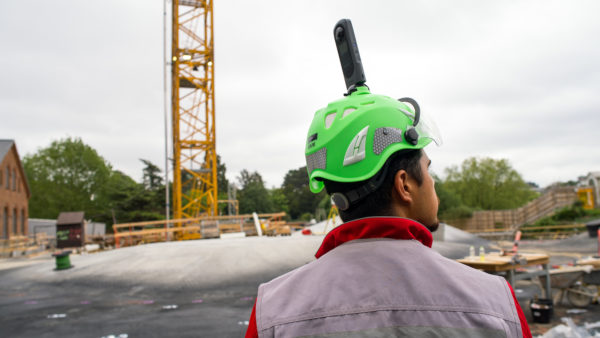Dr Eleni Papadonikolaki, associate professor in digital innovation and management at The Bartlett School of Construction & Project Management, University College London, laments the hijacking of the terms digital twins, but is looking forward to seeing the impact of ‘platforms’.
What in your view changed in terms of use of digital in construction and design in 2020?
The past year in digital in construction has seen a lot of discussions about the digital twin. I’m really interested in the concept, but also worried as it is put forward as a new and fancier BIM, especially by software vendors. It’s fantastic to see various industry bodies and groups and professional institutions involved in helping define, understand and deliver digital twins.
We shouldn’t forget all the points previously raised about multi-disciplinary collaboration in innovation and the creation of digital models. A lot of the digital twin talk over-emphasises data management and information management, but fails to reiterate that, as with BIM, we have to deal with numerous experts working together in a highly fragmented industry to produce common knowledge about physical assets. This should come first from any aspect of real-time simulations, analyses and manipulations of the digital twins. Our context is still socio-technical and issues such as procurement and how construction business models are organised are relevant.
What are you looking forward to trialling/bringing on board in the coming 12 months?
As an academic, I’m not really trialling any digital technologies in industry settings, but I’m heavily involved in collaborative research projects, e.g. with Mace, 3DRepo, EviFile and Mission Room, in a new Innovate UK project. With our other knowledge partners from UCL, the Centre for Advanced Spatial Analysis (CASA) and Imperial, we investigate real-time data analytics and human-computer co-locations in so-called control rooms. With other parts of UCL, especially Computer Science based at our new campus at Here East, we’ve recently acquired Husky (an unmanned ground vehicle or UGV) and are studying reality capture on live construction sites.
As the course leader of the MSc Digital Engineering Management, I’m closely following the developments in the area and also translating these and my research into the curriculum of this special MSc course. I really look forward to developing this new generation of digital leaders in the sector and beyond and what new ideas they can bring.
What barriers do you see holding back new technologies and how might these be lifted?
Construction is a very idiosyncratic sector and its relation with innovation is governed by the fragmented nature of the sector. With this project-based business model, there are little or non-existent funds for R&D and lack of safe environments to experiment and test new ideas.
The resurfacing of ideas of modularisation, mass-customisation and use of ‘platforms’ are an interesting turn, aiming to address the issues of this broken business model and deal with skills shortages. This is also an interesting space that I’m watching: platforms is a promising area to explore in our sector as to re-organising production (which is overlooked), although I’m not convinced that is the most accurate definitions exist out there (but that’s a different story altogether).











